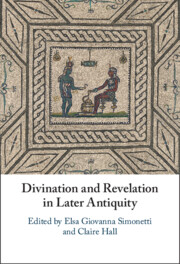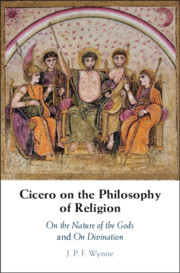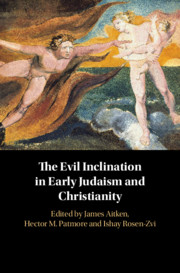Divination and Revelation in Later Antiquity
The period from the Late Roman Republic to the end of antiquity was marked by a wide interest in divination, and more broadly by an intense belief in the possibility of establishing close and personal connections with the gods. Divinatory practices underwent profound changes, accompanied by new trends in religious belief and philosophical reflection. Different religious, ethnic and cultural groups resorted to prophecy to define their respective identities and traditions, to articulate their peaceful or polemical interactions, and more broadly to construct their own worldview, the effects of which are still visible today. This wide-ranging volume creates a holistic picture of divination in antiquity, with perspectives from scholars of different disciplinary backgrounds. They argue that a greater focus on transcendent knowledge of the divine and cosmos influenced theories of divination among pagans, Jews, and Christians during the later part of the period.
- Clearly explains the core concepts of divination, revelation, and epiphany in ancient Greek and Roman thought
- Puts forward a new argument about an increased focus on transcendent knowledge of the divine and cosmos in divination in late antiquity
- Showcases contributions by a range of scholars working on paganism, Judaism, and Christianity
Product details
November 2023Hardback
9781009328784
240 pages
235 × 159 × 19 mm
0.49kg
1 b/w illus. 1 table
Available
Table of Contents
- Introduction. Part I. Philosophical Perspectives on Divination, Revelation and Prophecy:
- 1. Theories of prophecy in Philo of Alexandria Elsa Giovanna Simonetti
- 2. The Neoplatonic background of a text on prophecy attributed to John Chrysostom Andrei Timotin
- 3. 'Revelation' for Christians and pagans and its philosophical allegoresis: intersections within imperial Platonism Ilaria Ramelli
- 4. Divination and dialogue in Porphyry and Iamblichus Crystal Addey
- Part II. Status, Role and Functions of Human Intermediaries:
- 5. 'The holiest man ever born': sages, theoi andres and the shaping of late Greek prophecy Claire Hall
- 6. Women's access to divine knowledge in late ancient Jewish sources Hanna Tervanotko
- 7. Epiphany and divination reconsidered: the case-study of the iamata from imperial Pergamum Georgia Petridou
- 8. The true prophet in the pseudo-Clementine homilies Marco Zambon
- Part III. Divine Transcendence and Pragmatic Purposes:
- 9. Revelation and Roman augury Federico Santangelo
- 10. 'For thy kingdom is past not away, / Nor thy power from the place thereof hurled': Martianus Capella and a prophylactic oracle for Apollo Chiara Tommasi
- 11. No longer does Phoebus have a cabin': Emperor Julian and the fall of the temple in Delphi Aude Busine.







